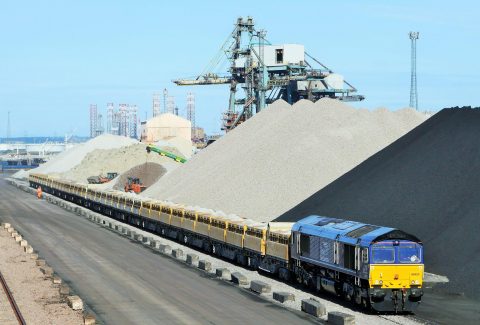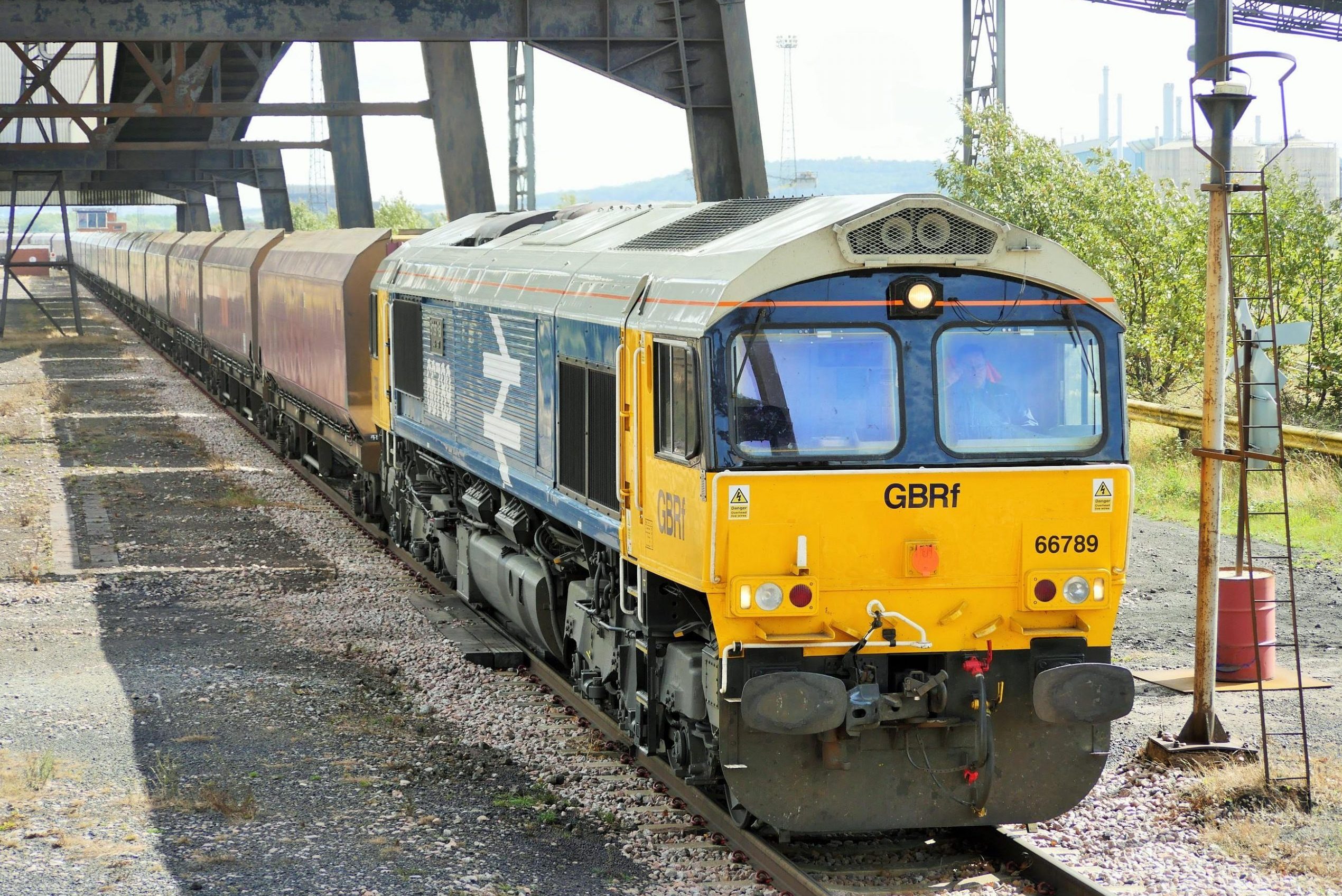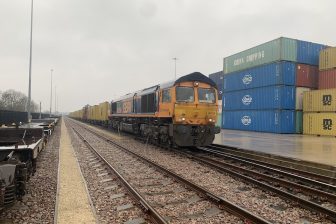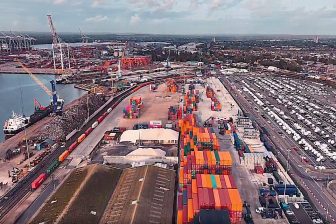
Redcar is handling bulk to regenerate the north of England
Rail is unbeatable for bulk handling, and one port in the north of England is taking almost one thousand movements off the UK roads, this week alone: the Redcar Bulk Terminal. The company’s activities are good for business, good for the environment, and good for economic regeneration.
There’s a busy week ahead at the Redcar Bulk Terminal, but less so on the surrounding roads through the neighbouring east of England communities of Lackenby, Marton and Middlesbrough. With stockyards of diverse range of bulk materials to be moved, such as the prosaically named Granulated Blast Furnace Slag (GBFS to the trade) together with, coal, aggregates and road salt Redcar Bulk Terminal has a timetable of train movements planned to whittle away mountainous loads, and distribute them around the country. Doing so by train is reducing truck movements by around one thousand loads this week alone, which is proving an environmental boon.
Redcar may have a beach pretty enough to be a filming location, but it’s heavy industry that’s always had the starring role here. Until 2015, this was the site of a massive steel works, of which only the dedicated railway station remains – officially Britain’s least used passenger platforms. The blast furnace has long since been closed down, leaving only the extensive rail layout across the south bank of the River Tees, where large bulk carrier ships still dock at the deep-water terminal.

Steel Works No More
Although they no longer handle raw materials for the long-gone steel works, it’s these legacy facilities that have survived what director Garry O’Malley called a hammer blow to all of Teesside. “Following the closure of the steelworks,” he says, “Redcar Bulk Terminal was provided with an opportunity to move away from traditional coal and iron ore imports by proactively marketing its unique assets to the wider ports and logistics sector.”
Continued investment in port equipment and rail infrastructure has seen terminal throughput continue to grow. The Terminal is the deepest bulk handling terminal on the UK east coast with the capacity to handle ‘Cape Size’ vessels, with drafts up to 17 metres, and discharge rates in excess of 40,000 tonnes per day. Moving large volumes of bulk cargo to and from the port are by far best achieved by rail.

Long Term Deals
The industrial location allows the Terminal to operate around the clock when necessary which has attracted other businesses to the 320-acre site. Plenty of room, and direct to the customs approved stockyards, has helped RBT to attract new customers and sign long-term deals, such as a much heralded agreement with Sirius Minerals to export up to 20 million tonnes annually of Polyhalite fertiliser through the existing Terminal and a custom-built facility.
This week’s programme sees the Terminal into a busy mid-December. The extensive rail infrastructure has made other economically regenerative projects possible, such as plans for a waste-to-energy power station, which will consume 500,000 tonnes of refuse, with the added potential to export circa 150,000 tonnes back into the cement and related industries.
The repurposing of the facility works remarkably efficiently. Bulk handling to rail involves overhead hoppers, directly fed by conveyors. Incoming loads are bottom discharged into underground hoppers and conveyed directly to the stockyards.
Although the steel works, which was the bulk of the terminal’s original purpose, is now just a memory, it is still bulk handling that’s very much a part of Redcar’s daily industrial life. Where once the raw materials of manufacturing were shipped in and finished steel shipped out, today’s loads are very much more a two-way process, and heavy rail is playing a vital part in regenerating this post heavy industry heartland.




